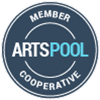Page 49 of A Field Guide to iLANDing.
Park
29 // Wandering
Page 48 of A Field Guide to iLANDing.
Park
Collaborators: Choreographer Kathy Westwater, Poet Jennifer Scappettone, Architect Seung Jae Lee, and Trail-Builder Leigh Draper
PARK expressed forms of making and unmaking by exploring the conversion of the Fresh Kills Landfill into a park. The collaborators shared their practices in choreography, poetry, architecture, and trail-building to activate the landscape, articulating the site’s mutating topography, infrastructure, mass, and scale while evoking notions of proximity and distance between the public and the largely invisible contents of the landfill. Their work collapsed individual and collective remoteness from the landfill’s obscured function in the life of the city. PARK invited the public to enter a zone of visceral intimacy created within this expansive and alien, yet familiar landscape.
PARK is about what we destroy in order to create. Existing as both process and performance, it expresses forms of making and unmaking that engage wilderness, post-industrial spaces, and everyday landscapes. PARK locates the convergence of nature, industry, and individual experience of the wild and mundane daily life at large at Fresh Kills, New York.
Geographically situated away from the view of many of the city’s inhabitants, Fresh Kills, once the largest landfill in the world, is currently undergoing a 30-year conversion into a park. The resident’s research includes exploring the translation of wilderness practices to the urban landfill-to-park site.
PARK seeks to activate the landscape, articulating the site’s mutating topography, infrastructure, mass, and scale while evoking notions of proximity and distance between the public and the largely invisible contents of the landfill, collapsing our individual and collective remoteness from its obscured function in the life of the city.
As New York continues to create a new use-value for the Fresh Kills Landfill, the PARK residency project – which culminates in a public event in Fall 2011 –represents an unprecedented engagement for project collaborators and the public with a unique site that has been largely inaccessible until now, though it is crucial to both the history and future of the city. PARK invites individual participants to enter into awareness of their own connections to this place, a monument to cycles of consumption in which we are all complicit; it invites the public to enter a zone of visceral intimacy created within this expansive and alien, yet familiar landscape.
Read more about their work together on their blog.
